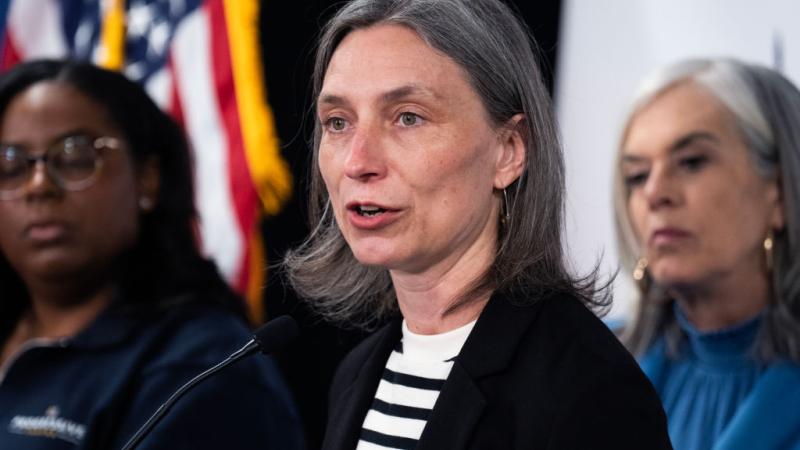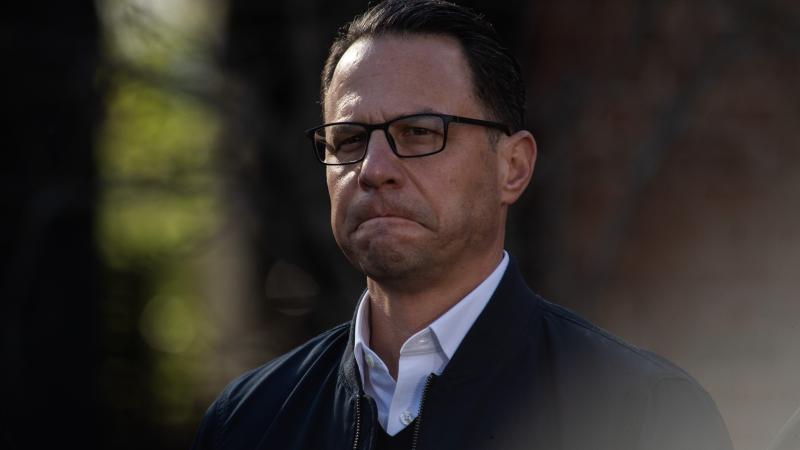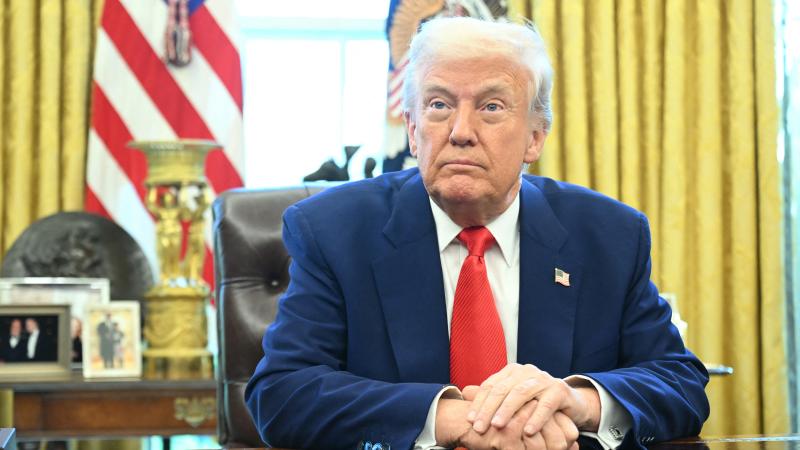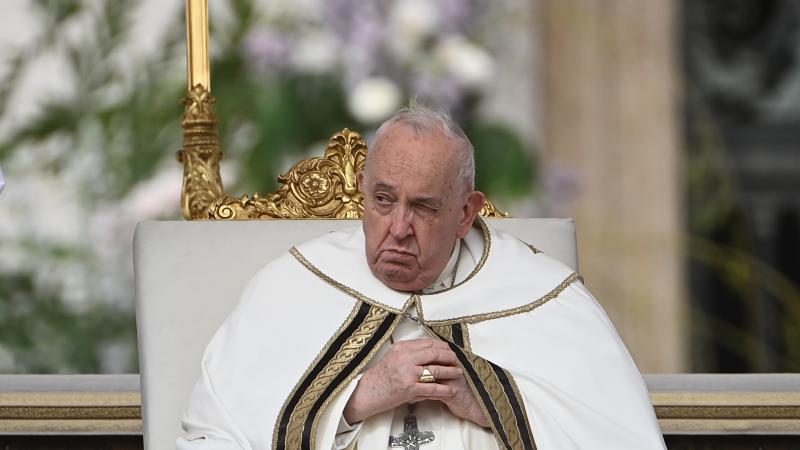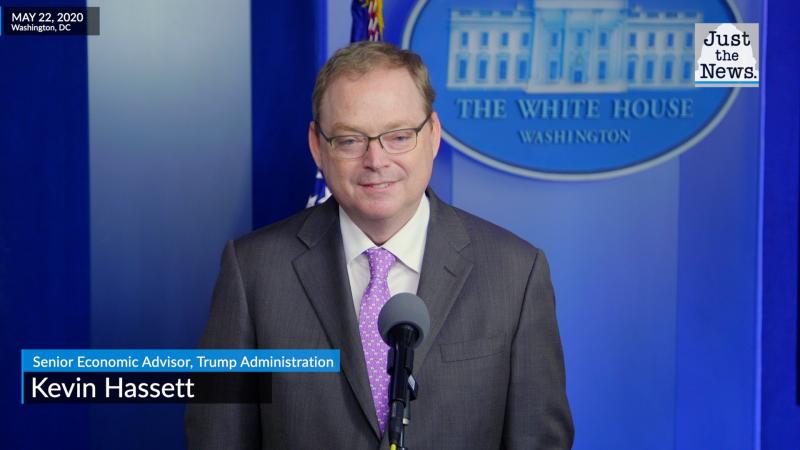Twitter's Jack Dorsey: Closet free speech warrior or opportunist scenting change in political wind?
Big Tech entrepreneur known for cultivating look of new age mystic and banning Trump from his platform for life has of late been lashing out at fellow board members and mocking CNN.
Jack Dorsey picked a curious time to defend free speech and decry the rise of fake news. The Twitter cofounder and former CEO — and long the face of a platform that made him a billionaire — leaves the company's board in a few weeks.
In the waning days of his tenure, as Elon Musk waged his methodical campaign to buy Twitter, Dorsey — oft-reviled for presiding over increasing viewpoint discrimination against conservative-leaning content — took to lashing out at his fellow board members and mocking CNN.
He has even been suspected of "defending" the scourge of woke America, Tucker Carlson.
For the Big Tech entrepreneur known for cultivating the look of a new age mystic and banning former President Trump from his platform for life, such deviations from woke orthodoxy, however modest, inevitably provoke questions: Is this the "real" Jack Dorsey emerging as he sheds the Twitter fetters? Has he been quietly acting as an unsuspected inside ally of Elon Musk's takeover bid? Is he simply an opportunist hoping to remain relevant amid an accelerating shift in the political and cultural tides under the influence of a historically unpopular liberal administration in Washington?
The mystery surrounding Dorsey's public metamorphosis only grew more intriguing after Musk clinched his deal for Twitter on Monday. Thanking Musk for rescuing the company from an "impossible situation," Dorsey declared, "Elon's goal of creating a platform that is 'maximally trusted and broadly inclusive' is the right one."
Dorsey served as a juicy target for the platform's critics over the years. His contentious debate with podcasters Joe Rogan and Tim Pool went viral in March of 2019, showing him both willing to hear opposing views but unable to refute charges of platform bias against conservatives.
A year later, Twitter joined Big Tech's efforts to suppress the New York Post's expose on Hunter Biden's laptop in the heat of a presidential election. Dorsey defended suspending The New York Post's Twitter account at first, saying it wasn't clear how the newspaper obtained the data in question. He quickly backpedaled, repudiating the "unacceptable" decision to block a story later confirmed as accurate by both The New York Times and The Washington Post.
The following year, he doubled down, calling that decision a "total mistake," without revealing who made the call or why it happened. His legion of right-leaning critics weren't appeased by the belated response. Nor did Dorsey step in when Twitter permanently banned President Donald Trump from the platform following the Jan. 6 Capitol breach.
Dorsey assumed a lower profile in 2021 before resigning as Twitter CEO last November.
He resurfaced in recent weeks after Musk's highly publicized efforts to take control of the platform. First, the Tesla mogul became Twitter's largest shareholder. Days later, he offered to buy the company outright for $43 billion.
Musk said his intentions weren't related solely to his imposing bottom line. The billionaire hopes to restore the platform's status as a free speech venue. That inspired a wave of attacks, both from the media and Twitter insiders.
Twitter's current board struck back, adopting a "poison pill" defense against Musk's bid. That didn't sit well with Dorsey, who tweeted: "As a public company, twitter has always been 'for sale.' that's the real issue." He also agreed with a user's tweet which read, "Good boards don't create good companies, but a bad board will kill a company every time."
Dorsey went further, describing the company's board during his tenure as the "dysfunction of the company." Was he hinting that he may have been losing free speech battles with his colleagues behind the scenes over time? That would help explain his resignation as CEO and surprising comments following the Musk-Twitter headlines.
Dorsey has also summoned his inner Joe Rogan of late, weighing in on media malpractice. He singled out CNN media correspondent Brian Stelter, who claimed Fox News superstar Tucker Carlson peddles "doubt" on his cable news program.
"And you are selling hope?" Dorsey retorted on Twitter.
When Newsmax's Alex Salvi tweeted that Dorsey was "defending" Carlson, however, Dorsey was quick to distance himself from the suggestion: "not defending a thing. holding up a mirror."
Yet, rather than backpedal from his implied rebuke of CNN, Dorsey doubled down when presented with an opening by Iraqi-American TV host and former Miss Universe Iraq Sarah Idan.
"Even @CNN sometimes sell false news," Idan tweeted. "I know this from covering Iraq events in 2019. People need to understand every media is prone to either mistakes or deliberate corruption. Do your own investigation before believing what they're selling you."
Echoing Idan, Dorsey supplied his own first-hand recollection of CNN manufacturing news during the 2014 anti-police riots in Ferguson, Mo.
"I know this from being on the streets of Ferguson during the protests and watching them try to create conflict and film it causing the protestors to chant 'f*** CNN,'" he wrote.
The small, racially divided city became a national lightning rod following the death of a young black man, Michael Brown, after an altercation with a police officer. The Obama Justice Department later determined officer Darren Wilson shouldn't face charges in Brown's death.
Dorsey began his public life as a free speech warrior — but that didn't survive culture pressure from the left, according to Dan Gainor, vice president of Free Speech America and Business for the right-leaning Media Research Center.
"He bowed to the woke left and increasingly turned the platform into an enemy of free speech," Gainor says.
Gainor isn’t surprised by the current bad blood between Dorsey and the board, but he’s not sold on the Big Tech guru's recent comments regarding free expression.
"Dorsey has made comments that could indicate he thinks the censorship went too far," Gainor allows. "But it went pretty far under his watch during the Trump era. Even if that was partly or mostly the fault of leftist employees, he bears the responsibility."
The Facts Inside Our Reporter's Notebook
Links
- Dorsey defended suspending The New York Post's Twitter account at first
- backpedaled
- calling that decision a "total mistake"
- resigning as Twitter CEO last November
- offered to buy the company
- billionaire hopes to restore the platform's status as a free speech venue
- media
- Twitter insiders
- "poison pill"
- "dysfunction of the company"
- Dorsey supplied his own first-hand recollection
- Justice Department later determined officer Darren Wilson shouldn't face charges






